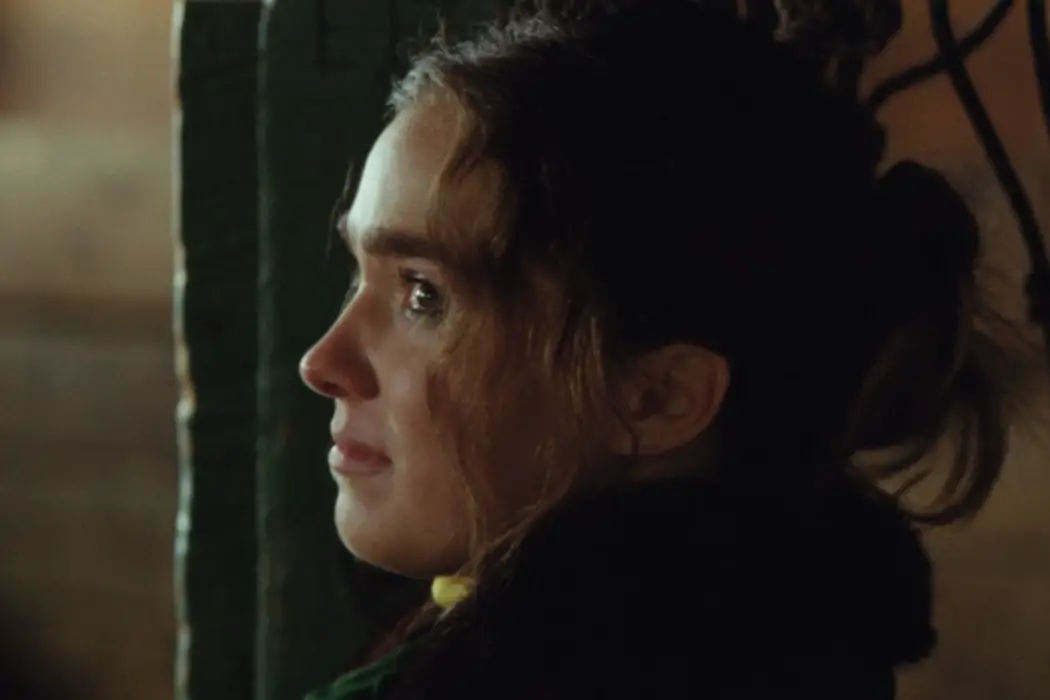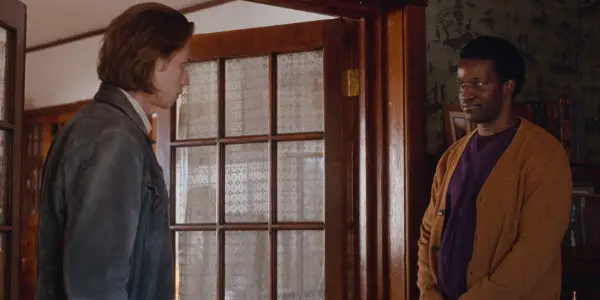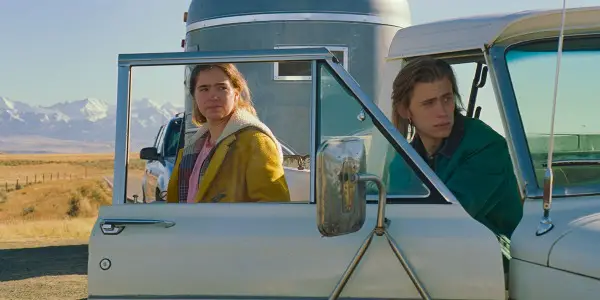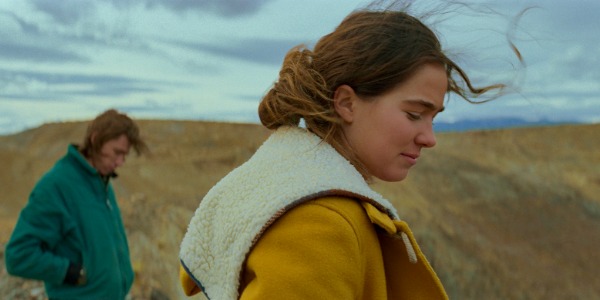MONTANA STORY: You Don’t Have To Go Home

Alex is a film addict, TV aficionado, and book lover.…
One of the most underrated movies of the last twenty is Tamara Jenkins’ The Savages. I know, shocking to declare a Jenkins movie underrated since she releases absolute bangers once every ten years and then disappears into the mist. But Savages, Private Life, and The Slums of Beverly Hills are all masterful captures of small, imperfect slices of life that somehow aren’t deemed important enough to embed permanently in the movie landscape.
I bring this up because Savages is essentially an East coast Montana Story, telling the fumbling, loaded story of estranged siblings reconvening to see out their father’s dying days. The fathers in both films are not men they have affection for, and in both it’s quickly apparent that some sort of traumatic abuse has nearly severed the families entirely. But taking care of your parent is what you do, so the siblings show up and the films use their time not for the absolution of the father but to poke and pry at whatever is left between the siblings.
These are hardly the only two films to take on such a heightened scenario, but if you’re one of the few who remember and treasure Jenkins’ film, the earnest but flawed Montana Story can’t help paling by comparison. Where Jenkins made a brutal film that feels light, co-directors Scott McGehee and David Siegel made the brutal Montana Story feel punishing, and while the lives glimpsed and the points made make it just worth absorbing, it would’ve behooved them to learn how predecessors like The Savages pulled some punches.
Dense But Uneven
A family drama like Montana Story, with undercurrents many will recognize from larger or smaller currents within their own families, gives storytellers a million tantalizing avenues for them to explore. The trick, most of the time, is to resist as many as possible, whittling the story down to its key parts and really sitting with those details.

Early on, it seems like McGehee and Siegel (who also co-wrote the script) will resist the spread admirably. We begin with Owen Teague’s Cal pulling up to a crumbling ranch, the disrepair a nice visual cue to the inattentive distance that sits between the few congregated people. There’s him, a kind housekeeper who comes and goes, the hired live-in nurse, and the comatose father. Between the three who can speak there’s little to be said. Between the man who can’t and everyone else, well, that doesn’t matter anymore.
Cal goes about the business of wrapping up his father’s estate with a perfunctory terseness, the most difficult decision seeming to be the fate of an old family horse. Even with this, though, he grits his teeth and takes the path of least resistance. Up to this point, the film is a steady portrait of ill-contained wounds languishing in the wide-open chill, a nice blend of setting and theme.
Then Haley Lu Richardson’s Erin shows up, jarring unnamed things loose and disrupting the solemn affair. She’s not trying to make a scene. In fact, she’s not even sure she should be there, but one thing leads to another (particularly when it comes to that horse) and the film suddenly has enough brewing to feel ill-contained within the Montana sky.
That the particulars of what went on between father, son, and daughter is treated as a mystery isn’t an issue (it’s a pretty standard plot structure, to be honest), but the way in which McGehee and Siegel tease out the time between Erin’s arrival and the revelation of the trio’s history loads cumbersome idea onto a cumbersome idea. There’s the horse that is set up as a major metaphor but disappears partway through, a painful lesson on Dante’s Inferno, and, of course, Montana itself.

If you call your film Montana Story then Montana better plays a significant role, so the idea of wringing this foreboding countryside for all it’s worth gets a pass. But doing it in the overly posed, clunky way McGehee and Siegel frame many of their shots can’t be excused, particularly when their penchant for wallowing in the environment clashes with the intimacy of the moment. There’s a disconnect here between shot and meaning, an unnatural clash that makes one think a list of beautiful images was forced upon a story that can’t support them. Where a film should feel like its pieces are working in concert towards a shared goal, Montana Story feels like a sum of disparate pieces, ideas clunking and clanging against each other with a hollow ring.
Familiar But True
What saves the film from spinning off is that each disparate piece has a core truth, uncomfortable and unwieldy at times, but true all the same. The wounds the two siblings carry and their stifling under the western expanse makes it of a piece not just with Jenkins’ The Savages but with the Kelly Reichardt brand of modern westerns, the ones that pry the false promise of the American dream out of the mythic landscape.
Bringing these realities to the forefront are the two leads, Teague and Richardson. Teague is the lesser-known and hence more surprising, particularly in the careful modulation he must bring to the heavily repressed Cal. Opposite Richardson, who brings her usual startling openness, Teague must match her turmoil within a character whose nature is to shut down when stressed. There’s never any doubt about the depth of his feeling, though, because Teague gives a subtly physical performance, digging his hands deep in pockets and moving with a rigidness that betrays how much he’s holding back.

Then there’s Richardson, an actor who, simply put, is one of the greatest of her young generation. She may not have the formal acclaim or name recognition of some of her contemporaries, but pluck out any performance, this one included, and you’ll understand her brilliance.
This is a perfect role for her because she doesn’t need a character to be explained. Her great power is exuding such strong, deep emotion that you understand precisely who her characters are, no context needed. So when she rolls in as Erin, it doesn’t matter that we know nothing about the young woman standing in the driveway. Vulnerability and unease radiate off her, immediately heightening an already tense scenario, and through this sheer force of presence she anchors the rest of this clunky story to her ch
Conclusion: Montana Story
Montana Story is a film that tries to do a bit too much, but a pair of great performances and a core story that rings true makes it worth looking past its faults.
What did you think of Montana Story? Do you think it kept its story front and center? Let us know in the comments!
Montana Story is in theaters now in the US. Further release dates are not currently known.
Watch Montana Story
Does content like this matter to you?
Become a Member and support film journalism. Unlock access to all of Film Inquiry`s great articles. Join a community of like-minded readers who are passionate about cinema - get access to our private members Network, give back to independent filmmakers, and more.
Alex is a film addict, TV aficionado, and book lover. He's perfecting his cat dad energy.













